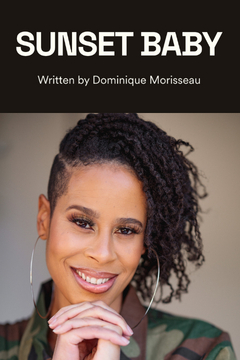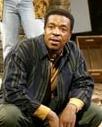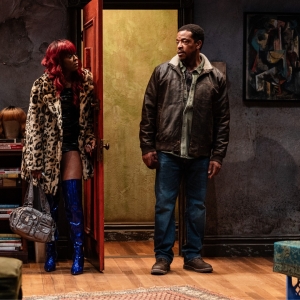Sunset Baby - 2024 Off-Broadway History , Info & More
The Pershing Square Signature Center [The Romulus Linney Courtyard Theatre]
480 West 42nd Street New York, NY 10036
East New York, Brooklyn. Nina’s estranged father Kenyatta, a former Black revolutionary and political prisoner, reappears to obtain a coveted piece of her late Mother's legacy. While Kenyatta had visions of changing the world, his daughter became everything he feared. Now he’s at her mercy for his own redemption. This is a story about love, political action, and one woman’s journey from a brutal existence to her own liberation.
Sunset Baby - 2024 - Off-Broadway Cast
FEATURED REVIEWS FOR Sunset Baby
Sunset Baby’s Troubled Children of the Revolution
7 / 10
These are meaty, complex questions and intriguing to ponder — Morisseau’s plays often sit atop fascinating historical strata, even if their dramatic construction tends to stick to the middle of the road. Sunset Baby doesn’t burst off the stage, but it keeps us intellectually engaged. What it offers for contemplation is the unglorious face of revolution, what Kenyatta calls “the man in the mirror.” That face is tired and worn, full of mistakes and unintended consequences, but Morisseau suggests that it is not the face of failure. It needs rest and grace; it needs to soften. The sun will rise again, and the revolution — unglamorous, daily, personal, imperfect — will continue.
'Sunset Baby' review — Moses Ingram shines as a woman in a personal revolution
8 / 10
Simone’s ghost haunts this work in a subtle way, shaping the rhythm of scenes and echoing in the actors’ voices. Ingram in particular, under director Steve H. Broadnax III’s elegant direction, makes you believe revolution is only a matter of time.
Sunset Baby FREQUENTLY ASKED QUESTIONS
Sunset Baby History
Other Productions of Sunset Baby
| 2024 | Off-Broadway |
Signature Theatre Off-Broadway Production Off-Broadway |
Sunset Baby - 2024 Off-Broadway Awards and Nominations
| Year | Ceremony | Category | Nominee |
|---|---|---|---|
| 2024 | The Lortels | Outstanding Revival | Sunset Baby |
Videos






